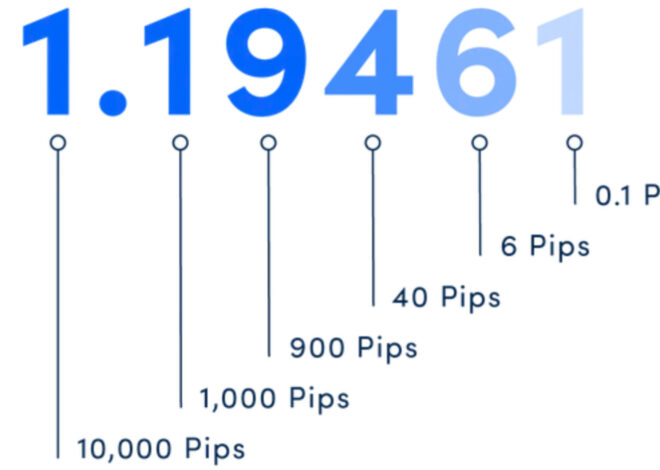
What is a Forex Reserve
Forex reserves, or foreign exchange reserves, are crucial assets held by a country’s central bank in foreign currencies. They include cash, bank deposits, bonds, treasury bills, and other government securities, which can be liquidated for immediate use. Understanding the concept of forex reserves in finance is essential for grasping how countries manage their monetary policies and respond to economic challenges.
Understanding the Concept of Forex Reserves in Finance

Forex reserves serve several significant functions in the economy:
- Facilitating International Trade: They enable countries to pay for imports and settle international debts.
- Stabilizing the Currency: Reserves can be used to influence the exchange rate, ensuring stability.
- Financial Security: They act as a buffer against economic shocks or crises, providing security in times of volatility.
The Role of Forex Reserves in National Economies

Forex reserves play a pivotal role in shaping a country’s economic landscape. Their impact can be seen through various lenses:
- Exchange Rate Management: Central banks intervene in foreign exchange markets with their reserves to prevent excessive volatility.
- Investor Confidence: High levels of forex reserves can enhance a country’s credit rating, attracting foreign investment.
- Economic Policy Implementation: Governments can use reserves to fund developmental projects or support economic initiatives during downturns.
Comparative Table: Role of Forex Reserves
| Function | Description | Impact on Economy |
|---|---|---|
| Exchange Rate Stability | Intervention in forex markets to stabilize currency | Reduces inflation and currency devaluation |
| International Trade Facilitation | Payment for imports and debts | Enhances trade relationships and liquidity |
| Financial Security | Buffer against economic shocks | Boosts economic resilience and confidence |
| Attracting Foreign Investment | Enhances credit ratings and investor confidence | Facilitates long-term economic growth |
How Forex Reserves are Accumulated and Managed

Countries accumulate forex reserves through various means, including:
- Trade Surpluses: When a country exports more than it imports, foreign currencies accumulate.
- Foreign Direct Investment (FDI): Inflows from foreign investments contribute to reserves.
- Loans and Aid: External financial assistance adds to reserve stocks.
- Central Bank Operations: Governments may buy foreign currencies to increase reserves.
Management Strategies:
- Diversifying Holdings: To minimize risk, central banks often hold a mix of currencies and assets.
- Regular Assessments: Monitoring reserves helps ensure they align with economic needs and global market conditions.
- Transparent Policies: Clear guidelines about reserve levels enhance market confidence.
The Impact of Forex Reserves on Currency Stability

The level of forex reserves directly correlates with a country’s currency stability. A robust reserve position can mitigate the effects of market fluctuations and speculative attacks. For example:
- India’s Forex Reserves: India’s increasing forex reserves have allowed the Reserve Bank of India to manage the Indian Rupee’s volatility effectively, smoothing out the impact of global economic shifts.
Conversely, insufficient reserves can lead to severe currency depreciation and financial crises. Countries like Argentina have faced challenges due to dwindling reserves, affecting their economic stability.
Current Trends and Challenges in Forex Reserve Management

As global financial landscapes evolve, several trends and challenges in forex reserve management have emerged:
- Digital Currencies and Cryptocurrencies: The rise of digital currencies is prompting central banks to reconsider their strategies regarding traditional reserves.
- Geopolitical Tensions: Trade wars and sanctions can influence reserve accumulation and management strategies, as seen in the cases of Russia and China.
- Environmental, Social, and Governance (ESG) Factors: Increasingly, reserve management is influenced by sustainability considerations, affecting investment choices.
Future Outlook: The Evolution of Forex Reserves Globally

As we look toward the future, several key developments are anticipated in the realm of forex reserves:
- Increased Digitalization: The potential for central bank digital currencies (CBDCs) may change how forex reserves are managed and reported.
- Diversification into Emerging Markets: As emerging economies grow, the diversification of reserves into these markets may become more prevalent.
- Focus on Sustainability: Reserve management may increasingly incorporate ESG factors, influencing the types of assets held.
In conclusion, understanding forex reserves is essential for grasping the broader dynamics of international finance. As countries navigate the complexities of globalization, economic volatility, and technological innovation, effective forex reserve management will remain a cornerstone of national economic strategy, ensuring stability and growth.



This article explains forex reserves well. I didn’t know they help with trade and currency stability.
‘Understanding forex reserves’ is key for everyone interested in finance. Thanks for the clear breakdown!
I never thought about how countries accumulate forex reserves through trade surpluses. Good info!
‘Digital currencies’ changing reserve management is an interesting point. The future looks different!
Interesting to see how forex reserves impact investor confidence. Makes sense for attracting investments.
I learned that forex reserves can protect a country during economic problems. Very useful information!
‘Argentina’s challenges’ due to low reserves shows the risks involved in managing them poorly.
‘Environmental, Social, and Governance factors’ affecting reserves is new to me. Makes it more complex!
‘The role of forex reserves’ section was very informative! Currency stability is crucial for economies.
It’s important for central banks to manage these reserves well. The strategies mentioned are quite insightful.